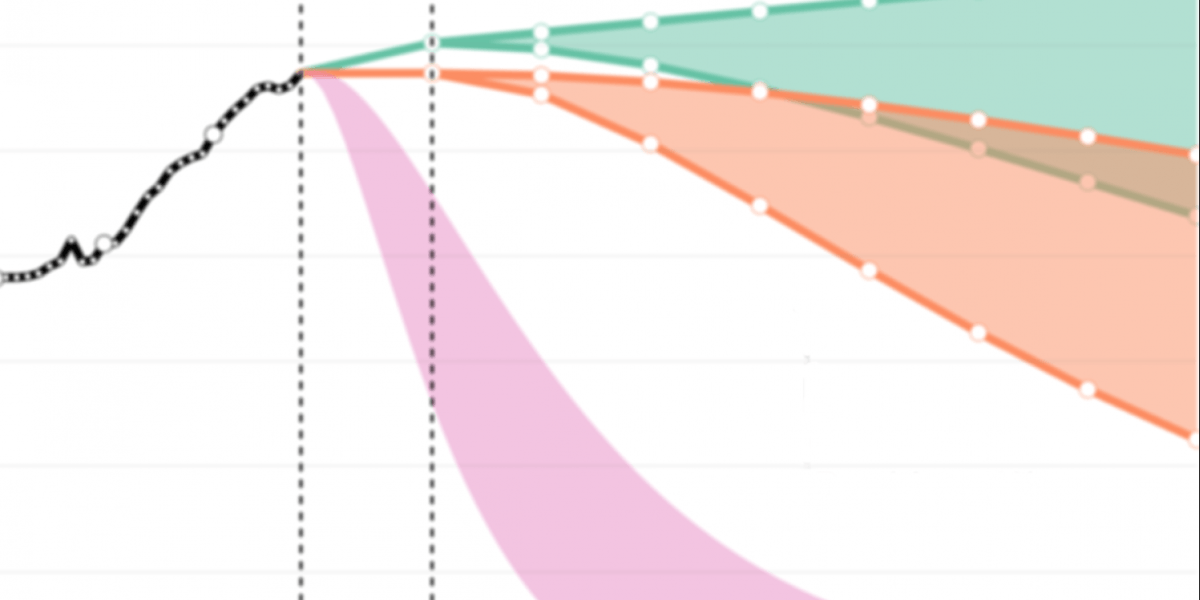StressTest: Using scenarios to assess climate risk in the financial sector
Increasingly, financial decision-makers are asked to assess, disclose and respond to climate-related risks across a range of potential future scenarios. In the project StressTest, CICERO will produce scenario data and guidelines that will allow help financial actors to respond to regulatory initiatives on scenario use.
Project details
The financial sector plays a critical role in accelerating the transition to a low carbon society, both in redirecting capital markets towards low-carbon and climate resilient infrastructure and in managing risks from the transition and physical impacts of a changing climate. The framing of climate change in terms of potential impact on financial bottom lines brought climate change onto the radar of the financial sector. There is now increasing awareness that climate-related risks are also risks to financial stability.
Climate scenario stress-testing features strongly in recommendations and regulations from financial and regulatory authorities, including the recommendations from the Financial Stability Board’s Task Force on Climate-Related Financial Disclosure (TCFD) and from the EU.
| What is a climate scenario?
A climate scenario is a coherent narrative describing a potential future. Most scenarios also show the pathway to that future and the drivers of change along the way. Scenarios allow investors and corporations to assess how their financial assets will be affected under a range of possible future developments, helping them to assess climate risk. |
Existing climate scenarios are ill adapted to the short term and risk-based stress-testing needs of financial actors. Moreover, financial stakeholders have expressed a pressing need for data and guidelines to meet reporting expectations and obligations.
There is a lack of scientific literature on how to use long-term emission scenarios for short-term financial decision-making. StressTest aims to provide knowledge on how the existing long-term scenarios may be translated to support decision-making in the financial sector where time horizons are less than five years.
The primary objectives of StressTest is to develop consistent datasets and guidelines to allow the financial sector to use scenario analysis to report on, and respond to, climate-related transition risks.
Key to the project is the close dialogue and collaboration with the financial sector, building on CICERO Climate Finance Advisory Board, established networks from CICEROs other projects carried out in close collaboration with the financial sector (e.g. ClimINVEST, Sustainable Edge).
The StressTest project is organized in three work streams (work packages)
1: Identifying existing knowledge and stakeholder needs
During the first period of the project, we will engage with stakeholders to map the existing knowledge of financial stakeholders to identify how they understand and interpret scenarios and to map the needs of these stakeholders to undertake the TCFD recommendations on scenarios stress testing and governance.
2: Developing scenario datasets, guidelines and outreach materials
To improve the information flows and translate existing scenario information into formats and timeframes useful for financial actors, we will create a scenario database. The database will be developed with input from and in dialogue with financial stakeholders. The database will provide context around what energy and climate scenarios mean and improve communication with financial stakeholders. We will also develop guidelines and guidance on how to use scenario data for stress-testing and how to respond to the TCFD recommendations. This material will be developed in coordination with TCFD and UNEP FI and consider regulatory developments on sustainable finance in the EU.
3: Outreach and capacity building to support scenario stress-testing
In the second half of the project period, we will reach out to financial institutions to build capacity in applying scenario stress-testing to the needs in their institutions. The outputs of the project will be widely disseminated in Norway and internationally through established investor networks.
Project management and partnerships
The project is coordinated by CICERO and the work will be carried out by senior researcher Ida Sognnæs, research director Glen Peters and head of climate finance senior adviser Christa Clapp. Senior communication adviser Miriam S. Dahl will assist with the outreach to the financial sector.
Hilde C. Bjørnland, professor of economics at BI Norwegian Business School, will act as an external advisor to the project on financial markets and macro-economics.
The core stakeholder group is built on CICERO Climate Finance Advisory Board and CICERO’s established networks in the financial sector. The stakeholder group includes institutional investors, asset managers, banks, companies, government and scenario experts.
